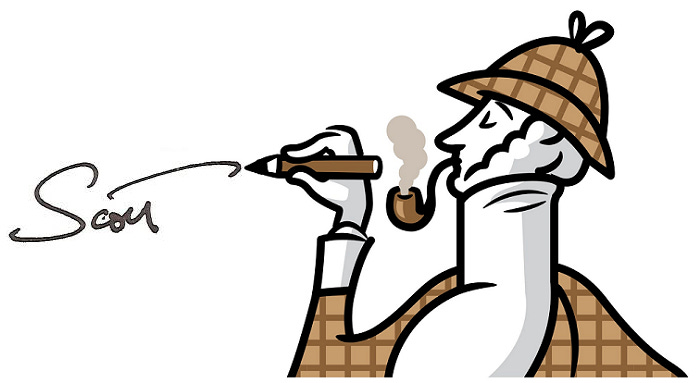Putting the “Pro” in Procrastination
Don’t delay. Be deliberate about your actions. Your time here is fleeting.

[Editor’s note: The following is an example of the kind of content that goes out to the Ampersand Guild — our community of paid subscribers. It’s unlocked so you can explore. You can sign up here.]
“Tomorrow, tomorrow, I love you, tomorrow
You’re always a day away”
— Martin Charnin, 1977
I’ve been thinking about procrastinating lately.
Well, not thinking about it like I was planning on doing it. I mean I was considering its implications.
You see, around this house over the past few weeks, I’ve been treated to strains of “Tomorrow,” from the musical Annie, which my nine-year-old daughter is trying out for.
It was rough going the first couple of weeks — before the voice lessons kicked in — I thought my hair might curl like Andrea McArdle’s wig.
We made it through, but there was a lyric that kept nagging at me in this notoriously optimistic song.
“You’re always a day away”
You see, I thought it was supposed to be “You’re only a day away.” That made more sense to me.
As if to convince ourselves that the day that’s gray and lonely would be over the next day.
But the cruel reality for so many of those orphans in the care of Mrs. Hannigan is that, in their hopes of being adopted by a family tomorrow, it was always a day away.
Had the youngsters studied their Shakespeare, they might have realized the words of Macbeth foretold repeated dread rather than eternal optimism:
“Tomorrow, and tomorrow, and tomorrow,
Creeps in this petty pace from day to day
To the last syllable of recorded time”
The thing with procrastination is that it’s so easy to do. Literally, it takes no effort to procrastinate.
And that very word — procrastinate — it sounds positive. There’s a pro in it!
True, it comes from the Latin prefix pro-, meaning “forward,” and crastinus, “of tomorrow.”
But inaction and immobility, like the ‘pro’ in procrastination, are illusions of comfort, like being under that warm blanket on a chilly morning.
And with so many distractions at our disposal, a quick dose of social media-flavored dopamine feels good. Immediate gratification has never been easier.
Why Do We Procrastinate?
Everyone has their own reasons for procrastinating, and it’s likely that each of us puts things off for a combination of them.
These may include:
Lack of interest: Sometimes our to-do list contains boring things. Perfunctory things like making a dentist appointment or paying the heating bill. These are regular necessities, but they’re not exciting. Our brain prefers things that are more thrilling.
Levels of difficulty: When we look at a huge project, it can be overwhelming. We might not even know where to begin. And instead of digging in, we give up and do something easier.
Perfectionism: Perfect is the enemy of good, and in this case it can be the enemy of even getting started, let alone completed.
Fear of failure: It’s not just perfection that prevents us from getting going; sometimes we fear the outcome. That feeling of anxiety only gets more intense as the deadline looms, and we’re left with scrambling, which ironically makes failure even more likely.
Inability to focus: As someone with ADHD, this is my Achilles heel. With so many distractions happening to command our attention (in addition to the four reasons above), we can get sidetracked easily.
Breaking the Procrastination Habit
First, procrastination starts as a behavior. But over time, as we continue to behave in that manner, it can become a habit.
To break that habit, first you need to recognize it. Catch yourself in the act. And then figure out why you’re delaying things. See the list of five things above.
Then, develop some strategies to help steer you in the direction you want to go. These might include:
Setting deadlines: whether real or artificial, having a date by which to complete certain goals is helpful. Otherwise, things keep getting pushed off.
Limiting the time you spend on certain activities: the famed Pomodoro Technique, setting a timer and working for 25 minutes, then taking a five-minute break, works for many people. And setting a limit on how long you spend on fun activities.
Developing an accountability process: sometimes, we fail at holding ourselves accountable. Having a friend, colleague or partner as an accountability coach can help you keep things on task.
“Procrastination has been called a thief—the thief of time. I wish it were no worse than a thief. It is a murderer; and that which it kills is not time merely, but the immortal soul.”
— William Nevins, 1835
Procrastination is a decision made by emotion. We do it because it feels good in the moment.
Only you know what matters to you in the long term, but know this: we’re all dealing with a finite amount of time in this life.
Who knows what tomorrow may bring?
After all, it’s only a day away.
“Tolle moras. Semper nocuit differre paratis.” (“Avoid delays: procrastination always does harm.”) — Marcus Annaeus Lucanus, 61
Well-Kept Secrets of Procrastinators
It could very well be that we are not as advanced as a society because Leonardo Da Vinci and others were procrastinators. (Psychology Today)
Indecision by Abundance
You know what makes decision-making hard? When we’re faced with too many choices. (Timeless & Timely)
Listless
One of the greatest tools you can use to ward off procrastination is the to-do list. The brain loves ordered tasks. (The Guardian)
“Procrastination has robbed us of too many opportunities.” — Sarah Ban Breathnach, 2011
Procrastination Can Be Good
Arthur C. Brooks found that procrastination has two sides: slothful or prudent, a vice or a virtue, depending on your habits and the tasks at hand. (The Atlantic)
It’s All in Your Head
In a 2018 study, scientists determined that the amygdalas of procrastinators are fundamentally different than those of non-procrastinators. That’s right: procrastinators put off work because they’re brain damaged. (Science Daily)
Seems Extreme
It took a pandemic for this writer to realize she had a chronic procrastination problem. But it ended up with her finding ways to be a better procrastinator: with more calculation and less pain. (The Washington Post)
“No task is a long one but the task on which one dare not start. It becomes a nightmare.” — Charles Baudelaire, 1897
Atomic Habits offers a proven framework for improving — every day. James Clear, one of the world’s leading experts on habit formation, reveals practical strategies that will teach you exactly how to form good habits, break bad ones, and master the tiny behaviors that lead to remarkable results.
More of a watch than a listen, this is one of the greatest and most-viewed TED Talks of all time. Tim Urban takes us on the journey inside the mind of a master procrastinator. This is a must-watch. (YouTube)
There’s so much to learn,







